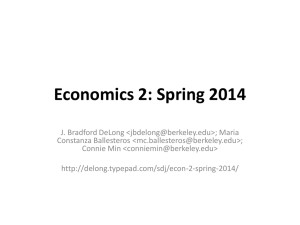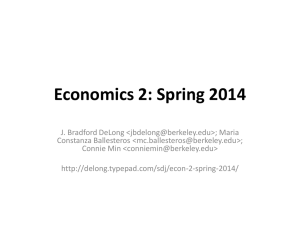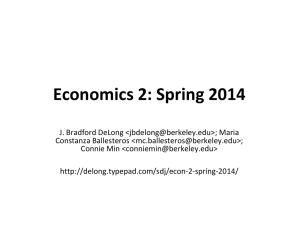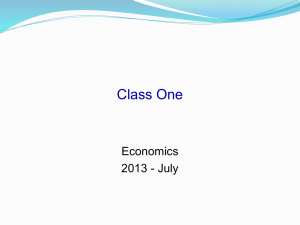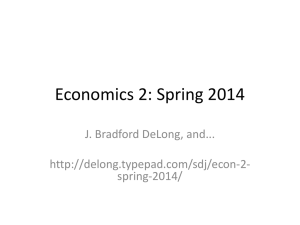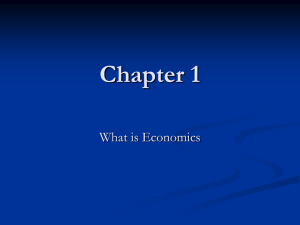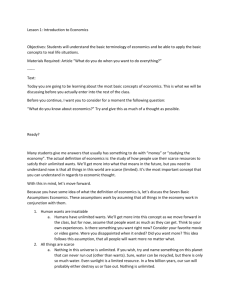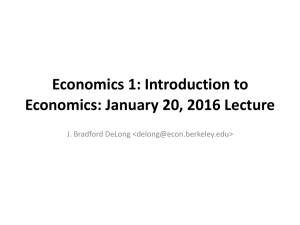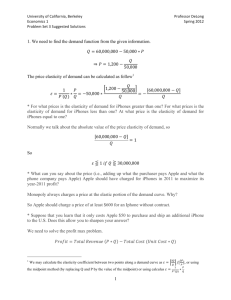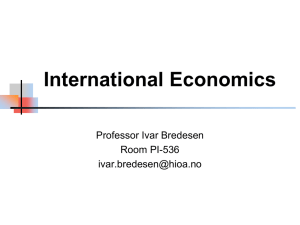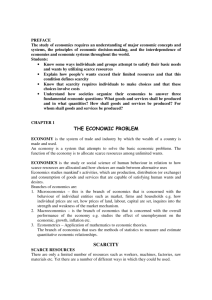Guiding Principles
advertisement
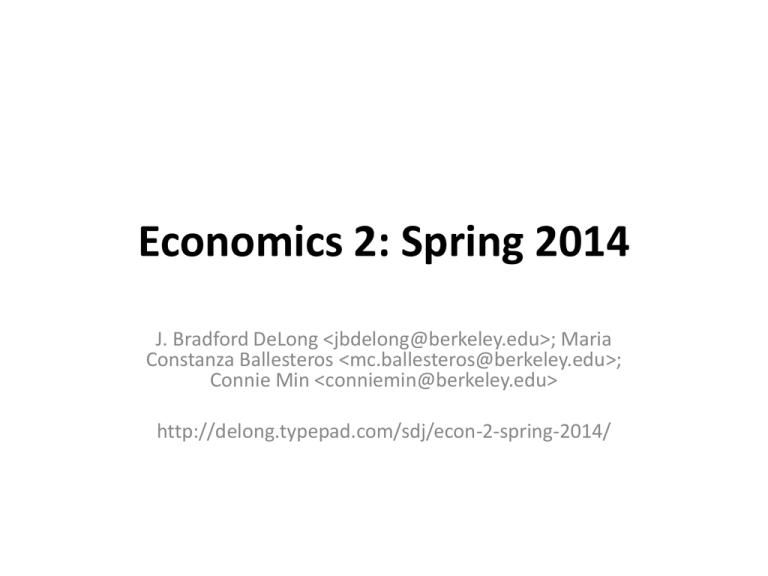
Economics 2: Spring 2014 J. Bradford DeLong <jbdelong@berkeley.edu>; Maria Constanza Ballesteros <mc.ballesteros@berkeley.edu>; Connie Min <conniemin@berkeley.edu> http://delong.typepad.com/sdj/econ-2-spring-2014/ Economics 2: Spring 2014: Guiding Principles http://delong.typepad.com/sdj/econ-1-spring-2012/ January 27, 2014, 4-5:30 101 Barker, U.C. Berkeley A Set of Principles for Analyzing Market Economies • Krugman and Wells: – Principles of individual decision-making – Principles of social interactions – Principles of macroeconomics • I would add: – Where do markets come from? – What do markets get us? – What do we lose from markets? Essentials of Economics I • Principles of individual decision-making: – People must make choices because resources are scarce • What if resources aren’t scarce? We’ll focus our attention on an area of life in which they are scarce! – The opportunity cost of an item is its true cost – “How much” decisions inevitably involve making decisions at the margin – People usually respond to material incentives— exploiting opportunities to make themselves better off • “man has almost constant occasion for the help of his brethren, and it is in vain for him to expect it from their benevolence only” Essentials of Economics II • Principles of social interactions: – There are gains from trade • “In civilized society [man] stands at all times in need of the cooperation and assistance of great multitudes” • “[Man’s] whole life is scarce sufficient to gain the friendship of a few persons” • “A spaniel endeavours by a thousand attractions to engage the attention of its master…. [Man] has not time, however, to do this upon every occasion” – – – – Resources ought to be used as “efficiently” as possible Markets move toward “equilibrium” Market equilibrium usually (?) leads to efficiency When markets don’t achieve efficiency, government intervention can improve society’s welfare Essentials of Economics III • Principles of macroeconomics: – One person’s spending is another person’s income – Overall spending sometimes gets out of line with the economy’s productive capacity – Government policies can change spending • But we won’t talk about these until after spring break. – For the next two months we will assume that people in aggregate want to spend their incomes today – Those who want to spend less than their income are balanced by those who want to spend more Governments Create Markets • Money and trust – “Thick-tie” exchanges – “Thin-tie” exchanges – Weights and measures • Property rights • Contract enforcement • Threats to property, contract, and (arms-length) exchange: – – – – Positive and negative affective ties Roving bandits Local notables Government’s own functionaries What the Market System Gets Us • People can “specialize” in what they are most productive doing • People can become more productive • People can trade via this institution called “market” • Market exchange is win-win – Relative to baseline • Market exchange maximizes wealth – As long as commodities are excludible, rival, known, and internal • Distribution? SLIDE DECK BREAK
